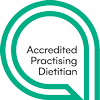Self-compassion – key to Intuitive Eating
When it comes to making peace with food and your body, being able to offer yourself some self-compassion is essential – for the simple reason that it’s really hard to make peace with food and your body, if you’re constantly at war with yourself. In this blog, I discuss what self-compassion is, some of the myths around it, why Intuitive Eating hinges on it, and how you can start practising it.
Why self-compassion?
Many people are reluctant or even resistant to the idea of practising self-compassion which is a shame because there is a lot of interesting research showing it’s associated with a range of health benefits including:
- reduced levels of anxiety and depression
- less disordered eating
- less body dissatisfaction
- less eating-related guilt
- happiness, life satisfaction and motivation.
And, according to a 2023 study, self-compassion appears to facilitate an Intuitive Eating style, independently of emotion regulation skills.
A 2017 study also found that people who have higher levels of self-compassion tend to handle stress better—they have less of a physical stress response to stress and they spend less time dwelling on stressful events. This is this important because physical responses to chronic stress include spikes in blood pressure and blood sugar along with a suppressed immune system. Also, if you react strongly to stress, you’re more likely to turn to coping mechanisms like smoking or numbing your feelings with food or alcohol.
In other words, research shows self-compassion isn’t just associated with better mental and emotional health, it’s also associated with better physical health.
What is self-compassion?
Self-compassion is a way of relating to ourselves kindly. At its simplest, it is the practice of being a good friend to ourselves, speaking to ourselves the way we would talk to someone we love such as a partner, child or friend when they are in need of some compassion.
Kristen Neff, a world leader in research on self-compassion, offers a more detailed definition suggesting it consists of 3 components:
- Mindful awareness
This is the ability to notice our thoughts, emotions and actions neutrally and without judgement. It’s important because if we don’t notice the fact that we are suffering, we can’t give ourselves the compassion we need.
- Common humanity
Self-compassion also includes recognition of our common humanity. This means accepting the fact that, along with everyone else on the planet, we’re flawed and imperfect individuals. It’s recognising that we’re just as likely as anyone else to experience misfortune and that feeling anxious, inadequate and other hard emotions is part of the greater shared human experience. At those times, remembering that we aren’t alone in our suffering—that hardship and struggle are part of the human experience—can make a radical difference.
- Self-kindness
Self-kindness refers to the ability to treat ourselves gently (like we might do a partner, friend or child with encouragement, understanding, empathy, patience and gentleness) when we are struggling, feeling inadequate or suffering.
Being able to recognise, accept, experience, and acknowledge difficult feelings with kindness helps us process and let go of them more fully.
Why do we find it so hard to give ourselves some self-compassion?
While many of us are very good at showing the people we love compassion, we often have difficulty extending it to ourselves, because we don’t have a lot of experience with it and sometimes for other reasons. Findings from a recent study suggest that misconceptions about self-compassion might impact people’s willingness to practice it. So, let’s take a moment to look at three myths can keep us stuck being hard on ourselves and not prioritising our own needs.
Myth 1: Self-compassion is selfish
Many people are suspicious of self-compassion because they equate it with selfishness. The truth is that the more self-compassionate we are with ourselves, the more we have available to give to others. Consider a time when you were full of self-criticism. Were you self-focused or other-focused in the moment? Did you have more or fewer resources to give to others? Most people find that when they’re absorbed in self-judgment, they actually have less to give to others. On the other hand, when we can be kind to ourselves, many of our emotional needs are met, leaving us in a better position to focus on others.
Myth 2: Self-compassion is just feeling sorry for myself
Another common misconception is that being kind to ourselves is the same as feeling sorry for ourselves, but there is a big difference. Whereas self-pity tends to say “poor me” or “why is this happening to me”, self-compassion recognises that life is hard for everyone and helps us feel less isolated when we’re going through a hard time. It is actually an antidote to self-pity because it makes us more willing to accept, experience, and acknowledge difficult feelings with kindness—which helps us process and let go of them more fully – and this supports our mental health. Self-compassionate people are less likely to become consumed by self-pitying thoughts about how bad things are.
Myth 3: Self-compassion will make me complacent
You may also worry that being too nice to yourself will affect your motivation, but ultimately, it is self-criticism that actually undermines our motivation. In contrast, self-compassion can increase our motivation to change – possibly because it gives us room to reflect on areas for improvement and make changes without the threat of self-criticism. Caring responses that are based on compassion help us maintain our self-confidence, and feel emotionally supported to do our best and try again.
How does self-compassion help with Intuitive Eating?
Intuitive Eating asks us to approach the way we eat using a neutral, non-judgemental approach and that’s difficult to do if we haven’t learnt how to be compassionate with ourselves. Here are 5 ways self-compassion helps you learn to eat intuitively.
Self-compassion helps keep you moving forward
As much as we’d like it to be, moving away from a history of dieting and body dissatisfaction toward a future of Intuitive Eating and body respect, appreciation, or liberation, isn’t a perfect linear process. It will feel strange and uncomfortable when letting go of your food rules and you will likely become frustrated when you have difficulty tuning into your body. There will be bumps in the road along the way and that’s “normal”, expected and OK. When this happens, self-compassion can be a powerful tool help keep you moving towards your new goals rather than getting derailed by diet culture.
Self-compassion helps you listen to and honour your body’s needs
Mindful awareness (one of the three components of self-compassion) allows you to pay attention and attune to your body in the present moment without judgment, allowing you to respond appropriately to your hunger and fullness, as well as to your emotions. It helps you listen and respond to what your body needs or what doesn’t sound or feel good in the moment. The more compassionate and understanding we are about our needs, the more likely we are to take care of ourselves.
Self-compassion fosters body acceptance and self-acceptance
Central to Intuitive Eating, is working to accept and respect the needs of your body and accepting yourself just as you are. Self-compassion can help you cope with any dissatisfaction you feel toward your body in a kinder and more understanding way. Accepting your body as it is, ultimately leads to making peace with food, and your body.
Self-compassion promotes self-discovery and cultivating trust in yourself
While diet culture promotes judgment and self-criticism, self-compassion cultivates trust and respect which allows for deeper understanding about your food habits, thoughts and behaviours by encouraging self- discovery.
Becoming self-compassionate
As humans we are driven to avoid danger and sometimes the uncomfortable emotions that arise following a mistake or failure can feel like “danger”. Our response is often self-criticism. And that self-criticism not only stops us from doing the things that make us happier and healthier in the long run, it can drive us to adopt behaviours that aren’t helpful long-term. Self-compassion helps us view uncomfortable emotions as less of a threat.
So how do you cultivate self-compassion?
- Start with bringing mindful awareness to your thoughts. Unless you pay attention, you may be unaware of the thoughts you have.
- Get curious and try to observe your thoughts in a neutral, non-judgemental way—are they kind and compassionate, or mean and critical?
- Acknowledge that you are not alone in feeling this way.
- Ask yourself: if a friend told me they are talking to themselves the way I am talking to myself, what would I say to them? It’s a simple question, but a super helpful one when it comes to making peace with food and your body.
In order to offer yourself compassionate self-care, the next step would be to ask yourself “what do I need right now?” And offer yourself the kindness of meeting that need. Maybe it’s going for a walk, calling a friend, preparing a favourite or comforting meal, reading a book, taking your dog for a walk, pottering in the garden, or listening to favourite music.
Let’s look at an example. Imagine you have the following self-critical thoughts: “I ate so much at dinner. I’m disgusting, a pig. I’m just not getting this Intuitive Eating thing.”
Notice the thought without judgement. How does it sound? Most likely you would say it sounds highly self-critical.
Now, what would you say to a friend who told you she was talking to herself this way?
Perhaps it might be something like: I’m so sorry you’re feeling this way. Sometimes it can feel like you are the only one who struggles with their body or nobody could really understand how you feel about your body, but did you know we are all swimming in diet culture together and you are not alone in feeling angry, frustrated, sad? Many people struggle with food and accepting their body. It is hard and takes time and patience to unlearn all the things you’ve internalised from diet culture about your body, food and eating. You’re not doing anything wrong. There is no right or wrong way to do this. Only opportunities for learning. You are still learning. With time and patience, you will get there.
Now, after reading both examples of self-talk, which one helps you take a step back and leaves you feeling better, so you can then make the next best decision for yourself?
Self-compassion takes time, patience and practice
Speaking to yourself with self-compassion often feels hard at first because you’re training your brain to think in a totally different way. Like any practice, it takes time to learn to listen to your body, especially if you have been dieting for a long time. However, it does get easier with practice. You will find it becomes easier to hear your body’s natural cues and find pleasure in food once again.
Where can I find out more about self-compassion?
If you want to find out more or if this is a new concept for you, you might like to check out the following resources.
Websites
Kristen Neff’s website where you’ll find more self-compassion exercises and guided meditations under “practices” plus other resources you might find useful.
You could also listen to Kristen Neff’s Tedx talk The space between self-esteem and self-compassion
You will also find some great free resources at the Compassion Institute Compassion Institute
Podcasts
I can recommend these podcast episodes at Ten Percent Happier a podcast by Dan Harris about self-compassion:
- Ten Percent Happier Episode #309 with Susan Piver and Jeff Warren
- Ten Percent Happier Episode #310 (the scientific case for self-compassion) with Chris Germer
Some free and paid meditation practices focus on self-compassion.
Books
I also recommend these books, although it comes with a warning that they may contain some diet culture talk:
- “Self-Compassion: The Proven Power of Being Kind to Yourself” by Kristen Neff
- “Fierce Self-Compassion: How Women Can Harness Kindness to Speak Up, Claim Their Power and Thrive” by Kristen Neff
- “The Mindful Path to Self-Compassion: Freeing Yourself from Destructive Thoughts and Emotions” by Christopher Germer
- “The Mindful Self-Compassion Workbook: A Proven Way to Accept Yourself, Build Inner Strength, and Thrive” by Kristen Neff and Christopher Germer
Ready to take the next step? Contact me and request a complimentary call to find out more about Intuitive Eating and how it can help you truly nourish yourself – body, mind and soul.





